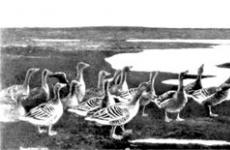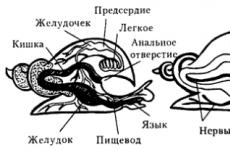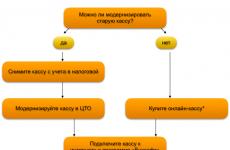Echinacea tincture on alcohol dosage. Echinacea tincture: instructions for use, method of application. Method of application and dosage
If you are thinking about strengthening the immune system and increasing the body's resistance to viruses, our article on the medicinal properties of echinacea and the features of herbal medicine will help you.
Bright pink echinacea flowers can be seen in summer in garden plots and urban flower beds. In addition to decorative qualities, the plant has a whole range of healing properties and is successfully used in folk recipes recovery, as well as in the composition of pharmaceutical drugs.
What is the benefit of echinacea?
- All parts of a young plant have useful active ingredients - flowers, stems, leaves and rhizomes. Echinacea has pronounced antiviral and bactericidal properties, therefore it is used to treat viral infections. infectious diseases– acute respiratory infections, herpes, diseases gastrointestinal tract- gastritis, gastric and duodenal ulcers
- The anti-inflammatory properties of the plant are used to treat festering wounds, ulcers, eczema, dermatitis various origins, allergic rashes, psoriasis, burns, traces of insect bites
- Echinacea contains betaine, a substance that helps normalize the function of cardio-vascular system and reduce the risk of strokes and heart attacks
- Biologically active substances in the composition of the plant contribute to the removal of salts of heavy metals from the body and are used to treat diseases of the liver and kidneys, diabetes, as well as inflammatory processes bodies genitourinary system, prostatitis, osteomyelitis
- In addition, drugs based on echinacea purpurea normalize arterial pressure, activate the activity of the immune system, helping to increase the body's resistance and general health improvement
Echinacea tincture - instructions for use
Echinacea tincture is a medicinal product based on natural raw materials - the roots and rhizomes of the purple echinacea plant (Echinacea purpuria).
- This remedy has a pronounced positive effect on the immune and central nervous systems of the body, increases the number of leukocytes in the blood, and also reduces the reproduction of pathogenic microbes.
- Reception of tincture in the autumn-winter period reduces the likelihood of contracting viral infections, helps to eliminate the spread of the inflammatory process in acute and chronic diseases kidney and Bladder
- The unique composition of the product is used for external treatment of open wounds, boils, ulcers and other skin lesions, as well as fungal infections, contributing to the rapid restoration of tissues.

 Echinacea tincture - an effective remedy for protection against viruses
Echinacea tincture - an effective remedy for protection against viruses It is necessary to take the tincture as follows:
- in the first 3 days of taking the dose of medicine for an adult should be no more than 30 drops, taken once in the morning half an hour before meals
- in the following days, the daily dose should be increased to 60 drops, divided into 3 doses (half an hour before meals)
children from 12 years old should take the drug, diluted with water in a ratio of 1: 2 - up to 10 drops 3 times a day - for external use, 15 ml of echinacea tincture is diluted with 100 ml of saline ( sodium chloride) and used for washings, compresses or lotions
General duration The course of treatment is prescribed by a doctor depending on the nature of the disease and the conditions of tolerance of the components by the patient. In general, the maximum time of admission should not exceed 8-10 weeks.

 On the recommendation of a doctor, echinacea can be used as part of a complex treatment.
On the recommendation of a doctor, echinacea can be used as part of a complex treatment. Echinacea tincture contraindications and side effects
Side effects when taking echinacea tincture can be expressed in the form of allergic reactions - redness, rash, swelling and itching of the skin.
Before starting treatment with this drug, you should consult your doctor, as there are a number of contraindications:
- individual intolerance to the active ingredients of echinacea tincture or identified allergy
- diagnosing leukemia, rheumatism, tuberculosis, multiple sclerosis and other autoimmune diseases in a patient
- HIV infection
- oncological diseases
- period of pregnancy and lactation (due to the alcohol base of the product)
- children under 12 years of age
The presence of ethyl alcohol in the product may also affect the patient's ability to manage vehicle, work with complex devices and mechanisms.

 A doctor's consultation is necessary before taking echinacea.
A doctor's consultation is necessary before taking echinacea. Echinacea release form: in tablets, drops, capsules, in ampoules
Preparations based on echinacea extract:
- alcohol tincture for internal use (50 or 100 ml) - from clear to cloudy brown
- liquid and dry extract for internal use
- solution for internal use (Doctor Theiss)
- lozenges - round or flat cylindrical shape
- capsules - 250 or 300 mg
- ampoules containing a solution for intramuscular injection
- oral syrup for children and adults
- herbal tea
Medicinal products are produced from natural herbal raw materials, not protected by patents, therefore, on the market pharmaceutical products are constantly appearing new types of drugs from various manufacturers.

 Based on echinacea extract, a large number of various pharmaceutical products are produced.
Based on echinacea extract, a large number of various pharmaceutical products are produced. Echinacea for adults
- These drugs are successfully used as a prophylactic and therapeutic agent for colds and viral diseases. The popularity of echinacea has increased significantly in the last decade, due to the preference for natural remedies as an alternative to chemically formulated antibiotics.
- The immune-restoring property of active substances is based on an increase in the production of interferon in the body, thereby increasing its resistance to viral, infectious and fungal diseases.
- The recipe for the preparation of drugs and dietary supplements based on the roots, flowers and leaves of the plant can be different and have one effect or another on the body - reduce inflammation, reduce the activity of bacteria, viruses and fungi, have an analgesic and healing effect
- catarrhal phenomena
- upper and lower respiratory tract infections
- urinary tract infections
- allergic dermatitis and other skin irritations
- fungal diseases skin ov
- vaginal candidiasis
- metabolic disorders
- chronic fatigue and stress conditions
- as a means of rehabilitation and restoration of intestinal microflora after taking antibiotics

 Echinacea can be used to prevent and treat various diseases
Echinacea can be used to prevent and treat various diseases Echinacea for children immunity in lozenges
The problem of reduced immunity and frequent morbidity is especially acute for parents of children of preschool and primary school age.
- This medicinal plant is a good helper for stimulating the immune system and preventing common childhood viral diseases. Regular use has restorative and healing impact on the child
- In case of infection with a viral infection, the use of echinacea facilitates the course of the disease, allows you to quickly stop the symptoms and avoid serious complications.
- The release form in the form of a tincture is not suitable for children under 12 years old, because it contains alcohol

 Echinacea lozenges for children - an effective remedy for boosting immunity
Echinacea lozenges for children - an effective remedy for boosting immunity Echinacea-based lozenges specially designed for children can be given to children from 4 years of age:
For the prevention of colds and viral diseases:
- children from 4 to 12 years - 1 tablet 2 times a day
- from 12 years - 1 tablet 3 times a day
For the treatment of infectious diseases as part of complex therapy:
- children from 4 to 12 years old - 1 tablet up to 4-5 times a day
- from 12 years - 2 tablets up to 3-4 times a day
You can take pills up to 5 days in a row, then you need to take a break for 2-3 days and resume treatment. The general course should not exceed 6-8 weeks.
Echinacea syrup, instructions for use
- Echinacea extract in the form of syrup is the most convenient means prevention of many diseases and for children from 1 to 4 years
- Timely intake of the drug helps to strengthen the unformed immune system of the child, which reduces the risk of contracting viral infections and avoid taking antibacterial drugs
The syrup is usually given to children in the following dosage:
- up to 3 years - 2-3 drops 2 in the morning and in the evening half an hour before meals
- children over 3 years old - 1 teaspoon in the morning and evening half an hour before meals
Before you start taking the drug, be sure to consult with your pharmacist and pediatrician. Contraindications for a child may be individual intolerance or the risk of developing atopic dermatitis due to the content of sugar in the composition of the syrup.

 For children under 3 years of age, a syrup form of Echinacea is recommended.
For children under 3 years of age, a syrup form of Echinacea is recommended. Echinacea tea, instructions for use
- Phyto-tea is useful for children and adults with influenza and colds as an auxiliary prophylactic and tonic
- In pharmacies, such a product can be purchased in the form of ready-made filter bags for brewing or sachets for preparing a decoction.
You can also make your own tea:
- Take 1 tbsp. a spoonful of crushed dry roots and leaves of the plant, pour 1 cup of boiling water
- Let it brew for an hour, take 0.5 cups of decoction with the addition of 1 teaspoon of natural honey half an hour before meals
- General daily dose tea or decoction for adults should not exceed 300 ml

 Echinacea tea has a tonic and healing properties.
Echinacea tea has a tonic and healing properties. Can pregnant women drink echinacea?
- The weakening of the immune system during pregnancy is due to physiological and hormonal changes in a woman's body. The use of natural remedies to increase the protective functions of the body against viruses and bacteria is more preferably than taking synthetic immunostimulants
- Based on the studies of the effect of echinacea on the health of the mother and the development of the child, it has been established that the intake of decoctions and infusions based on this plant does not lead to intrauterine malformations of the fetus
- In any case, the need for the use of echinacea and the dose of intake during pregnancy and lactation should controlled the attending physician. An increase in the established dosage may lead to the development of fetal immunodeficiency.
- Alcohol tincture of the plant, as well as injection of the drug contraindicated pregnant women
- Phyto-therapy in the form of a decoction, infusion or tea from a plant can be used in the treatment of inflammatory, infectious diseases, purulent wounds of the skin, mucous membranes and soft tissues, colds and influenza conditions, furunculosis, herpes, stomatitis, urethritis, cystitis, etc.
- The terms of taking the drug should not exceed 10 days

 Echinacea during pregnancy should be under the supervision of a doctor
Echinacea during pregnancy should be under the supervision of a doctor Echinacea: reviews
Lyudmila, 52 years old
On the advice of a doctor, she took a course of echinacea tincture for a month during a surge in colds and flu. I drank 10 drops, diluted in tea, 2 times a day. I think that taking echinacea is good for stimulating the immune system.
Marina 28 years old
Usually in the autumn-winter period I give my son a decoction or phyto-tea from echinacea with honey to prevent colds. In the spring, on the recommendation of a doctor, we take echinacea lozenges with propolis. Such funds are inexpensive, now in kindergarten he very rarely gets sick, although other children often catch colds.
Natalia, 46 years old
She often suffered from colds, the pharmacy advised me to purchase Immunal. However, after reading the instructions for this drug, found out that the main active ingredient is echinacea extract. I tried to use the usual tincture, which costs 10 times cheaper. After several courses of taking, I notice that the pain has become much less frequent.
Video: Echinacea to boost immunity. The easy way. blank
In our time, when technology is developing very quickly, people spend less and less time in the fresh air, constantly experience stress, eat junk food, do not fully rest and do not get enough sleep. All this affects the immune system, and, consequently, the state of the body. You need to constantly take care of your health, strengthen it and prepare for the intense rhythm of modern life.
The most popular and widely known plant that helps to strengthen the body's defenses is echinacea tincture for immunity.
What is this plant
Echinacea herb is small in size, with a short and highly developed rhizome.
The stems are simple, but strongly branched. They have rough leaves, which at the top end with a flower basket, with a receptacle in the shape of a ball. The flowers have a bright saturated color from pink to purple.
Beneficial features

This plant has antiviral properties, due to which the development of coccal infections stops, coli, harmful viruses and bacteria.
Echinacea (tincture) - reviews unanimously confirm this - normalizes metabolic processes in the body that stimulate the activity of the central nervous system and also blocks the development of inflammatory processes in the body.
The use of the drug enhances the body's defenses and immunity, therefore it is a plant stimulant. Echinacea stimulates the adrenal cortex, increases the production of hormones, which leads to antirheumatic and antiallergic effects of the drug.
Juice obtained from a fresh plant increases blood clotting, and when used locally, it accelerates the healing process of wounds and burns.
Indications for use
What diseases are echinacea (tincture) used for? Reviews recommend using it for colds, sore throats and flu, intestinal infections, blood infections, various diseases of the bladder, kidneys, ureter. The composition can also be used externally for the treatment of various skin diseases: urticaria, herpes, burns, ulcers, eczema. This drug enhances the work of histogenic phagocytes, and also restores damaged tissues.
Tincture gives positive results in the treatment of prostatitis, rheumatic pain in the joints, in diseases of the upper respiratory tract.
Echinacea tincture is widely used for psoriasis, insect bites and even snake bites. The use of a decoction of this plant makes it possible to treat stomach ulcers, stabilizes blood pressure and improves well-being.

Betaine, which is contained in the plant, has the ability to prevent the development of heart attack and stroke.
To restore the body after taking antibiotics or antibacterial drugs, after immunosuppressive, radiation or cytostatic therapy, echinacea tincture is recommended. The instruction emphasizes that the remedy has a huge effect on the immune system. Under the condition of its regular use, the number of leukocytes increases, the phagocytic response is activated, and the reproduction of pathogens is inhibited.
Echinacea tincture: how to take

For children over 12 years of age, the remedy is used diluted with water in a ratio of 1:2 or 1:3, 7-10 drops 2-3 times a day.
The optimal duration of treatment is from 2 weeks to 8, but no more.
Echinacea tincture - the instruction emphasizes this - is taken before meals, about half an hour. To achieve a quick effect, adults should drink 40 drops of tincture at the very beginning of treatment, and another 20 drops over the next 2 hours. Then, during therapy, take 20 drops daily 3 times a day.
For external treatment, the composition is used in the form of a solution - 30-60 drops of the tincture are diluted in 100 ml of a 0.9% sodium chloride solution. Echinacea tincture, the price of which is relatively low, is often used for compresses, lotions, rinses, tampons. The compress is applied to the wound and covered with paper, you need to change it 2 times a day.
When echinacea tincture can be prescribed, how to take it - only the doctor decides in each case. The duration of treatment is determined taking into account the age of the patient, the type of disease, its severity, and the overall tolerability of the drug. With good tolerance, the drug can be taken until a stable therapeutic effect.
When using echinacea extract, the dose for adults is no more than 8 drops per day, for children - 4-5 drops, depending on age.
Contraindications for use
Echinacea (tincture) - reviews repeatedly warn - in no form is suitable for babies under 7 years old. Pregnant women, nursing mothers and people with multiple sclerosis. In the presence of angina in the stage of progression, the tincture is contraindicated.
The main contraindications for use this medicine is the presence of such diseases: diabetes, individual sensitivity to the constituent components of the drug, rheumatism, tuberculosis, leukemia, collagenosis and other autoimmune diseases.
Echinacea tincture, the use of which provokes the production of an antitumor factor, can be used to inhibit the development of malignant tumors.
In the composition of the drug as excipient ethyl alcohol is included, so it should not be taken while driving a vehicle or when working on complex machines and mechanisms.
Side effects

Echinacea (tincture) can cause a number of side effects. Reviews constantly warn of this possibility.
According to some patient responses, the following symptoms may occur:
- rash of various types;
- swelling of the skin when applied externally;
- the occurrence of allergic reactions;
- itching and redness of the skin.
If you experience these symptoms, you should consult a doctor or temporarily stop treatment with this drug.
Overdose
Symptoms that occur with an overdose of the drug are: sleep disturbances, vomiting and other disorders of the digestive tract.
With an increase in excitability and the appearance of a state of nervousness, the amount of the drug taken should be reduced or suspended for a while, and it is best to consult a doctor.
Echinacea tincture for children

This medicinal preparation belongs to the most common means used in complex treatment acute respiratory diseases in children. Also, due to the ability to stimulate the body's defenses, the tincture can be prescribed as a means of prevention during periods of increased morbidity, especially in the winter season.
Echinacea tincture, the price of which is much lower than for other immunomodulators (about 40 rubles per 40 ml), is effective tool against neurophages and macrophages. Therefore, the drug can be used in initial stage viral infection in children, which will lead to a reduction in the duration of the disease.
It should be noted that this composition practically does not cause manifestations of allergies in children. In the event that minor side effects appear, the drug should be stopped immediately.
Storage conditions
The drug should be kept away from children. It is better to store the tincture in a cool place, protected from light. The optimum temperature is +25 degrees. During long-term storage, a small amount of precipitation is allowed. Shelf life - 2 years from the date of issue.
By group affiliation, this herbal preparation belongs to immunostimulants, and its action is aimed at strengthening immunity, suppressing the activity of pathogenic influenza and herpes viruses, as well as other pathogenic bacteria that can cause serious internal disorders of the body.
The main components of this medicine are obtained from the medicinal plant echinacea, and their action in the body is simply irreplaceable. Exactly chemical formula tincture increases the production of human interferon, activates cellular immunity, promotes the speedy removal of pathogenic microbes and toxins from the sick body, and also rapidly suppresses necrotic processes.
Produced in the form of tincture for alcohol in special metered vials, and is designed for both internal and local use.
Echinacea tincture has no analogues.
Indications and contraindications for the use of echinacea tincture
Among the indications for the use of echinacea tincture are the prevention and treatment of colds, viral and bacterial diseases different etiology. In addition, such an appointment is appropriate for immunodeficiency states against the background of a long illness, during a long antibiotic therapy, as well as with regular physical exertion and simply to strengthen the general condition of the body.
Despite its plant origin, the use of echinacea tincture is not recommended for women during pregnancy and lactation, children under seven years of age, as well as patients with progressive systemic and autoimmune diseases, pathologies of the kidneys and liver. Also, such treatment is not indicated for a tendency to allergic reactions and with increased sensitivity of the patient's body to the components of the drug.
Side effects and overdose of echinacea tincture
The drug is well tolerated by the sick organism, and side effects occur in single cases. clinical pictures. Yes, in medical practice such anomalies were observed during treatment: signs of dyspepsia, chills, as well as allergic manifestations on the skin, as a reaction of intolerance to the treating components.
In case of an overdose of echinacea tincture, there is an increase in all side effects. In such cases, cleansing of the stomach by artificial vomiting, taking any sorbent, as well as symptomatic therapy without the use of a specific antidote is indicated.
Instructions for use of Echinacea tincture
Echinacea tincture is used orally and topically. Before direct use, dissolve the medicinal tincture in a moderate amount of water, and preferably take it before meals.
Following the instructions for use, for the treatment of organs respiratory system prescribe 5-15 drops of echinacea tincture three times a day, and to accelerate the therapeutic effect in the first three days intensive care increase the number of daily approaches to six.
In the case of diseases of the gastrointestinal tract and urinary tract, a single dose of 40 drops is indicated, and after 2 hours the second dose is 20 drops of tincture. From the second day of treatment, 20 drops are shown three times a day.
AT childhood prescribe 5-10 drops of echinacea tincture up to three times a day. The course of treatment is no more than 8 days.
For external use, dilute echinacea tincture in water, and then use it as lotions, compresses, rinses or tampons. The number of procedures is individual in each clinical case.
Features of the use of echinacea tincture
The use of echinacea tincture is contraindicated during pregnancy and breastfeeding as well as in childhood.
Reception of echinacea tincture does not affect the ability to drive vehicles, as well as in intellectual activities and activities of increased concentration of attention.
No drug interactions have been identified.
Keep the medicine for two years.
Echinacea tincture reviews, price
There are a lot of reviews about echinacea tincture on various medical forums, where people share their impressions about the chosen treatment. Oddly enough, but this tincture is taken without a doctor's instructions, and, as you know, superficial self-medication is not always effective. That is why patients in their reviews remain dissatisfied with the effect of echinacea in a sick body.
But, nevertheless, many are clearly convinced that this medicine is a true salvation for ARVI and FLU, in particular, it helps to prevent their occurrence, or contributes to their mild form of the course. For other indications, the drug shows a mediocre result, and its action is not enough for the final recovery.
The price of echinacea tincture is 50 gr, 180 rubles.
04:20
- Echinacea tincture is folk remedy to strengthen weakened immunity, which has already been tested by time. Many patients, not trusting new developments modern medicine, resort to folk treatment and prevention, in which the drug plays a major role. general description Echinacea tinctures By group affiliation, this herbal preparation belongs to immunostimulants, and its action is directed [...]
echinacea
Bright beautiful flower echinacea certainly has a decorative appeal. Its unique medicinal properties in the form of prepared tinctures, they have long attracted the attention of traditional healers and representatives of official medicine. It is successfully used in pharmacology, is included in various drugs.
Useful properties of echinacea
The main and most valuable property of echinacea is the strengthening of immunity. It is he who is most valued by pharmacists, using the well-known Immunal medicine for the production. Echinacea is rich in nutrients, minerals, essential oils, it contains polysaccharides, trace elements, flavanoids, and other valuable elements. Inulin with a polysaccharide included in echinacea can not only strengthen the defenses, but regulate lipid metabolism, have a positive effect on the liver, bones, and help in the removal of sugar.
Medicines prepared on the basis of echinacea prevent the emergence and reproduction of many pathogenic bacteria. All parts of the plant (roots, leaves, flowers) have healing properties, they are credited with antiviral, anti-inflammatory abilities.
Valuable medicinal characteristics of Echinacea are used in the following cases:
- increased immunity;
- cold or flu;
- food poisoning;
- infection;
- inflammation;
- diabetes;
- diseases of the kidneys, urinary system;
- liver disease;
- radiation injury;
— various diseases skin;
- stomatitis;
- herpes;
– treatment of joints;
- increased appetite.
Most often, for the treatment and prevention of various diseases, doctors prescribe echinacea tincture, which is sold in a pharmacy. Everyone can independently prepare a useful drug.
How to prepare echinacea medicine at home?
In the preparation of any preparations, both fresh parts of echinacea are used, as well as dried ones on their own, or bought at a pharmacy. Useful decoctions are usually prepared using a water bath in order to preserve the maximum amount of valuable substances.

echinacea decoction recipes
- A decoction made from flowers
For 0.5 liters of water, 1 tablespoon is required. crushed flowers. Bay with boiling water, it is necessary to keep them on the water for up to 20 minutes. Reception is carried out before meals, one quarter of a glass. Such a tool is able to strengthen the immune system, give vigor, cheer up.
- A decoction made from the leaves
2 tsp dry leaves of Echinacea are poured with 2 cups of boiling water, a decoction is prepared by putting in a water bath for half an hour. It is recommended to take three times at a dose of 1 tbsp. He is excellent remedy with joint problems, frequent headaches, it can relieve inflammation, reduce swelling.
Read also: Yarrow (tree)
echinacea infusion recipe
This tool is great to relieve accumulated fatigue, to increase appetite. It is useful if there are problems with the stomach or intestines, in case of problems with the liver and kidneys.
For cooking, you need 1 tbsp. dried plant, which is poured with one glass of boiling water. The composition is infused for half an hour and filtered. Take the received medicine before meals 3 times.
echinacea tincture recipe
The tincture is useful to take to boost immunity during outbreaks. colds, during an epidemic of influenza and SARS, it is useful for a quick recovery after an illness.
The method of preparing tincture at home is quite simple: 100 g of dried and powdered roots, or 50 g of fresh raw materials (leaves and flowers), or 25 g of dry raw materials are poured into 0.5 liters of vodka. The drug is infused in the dark for about 2 weeks, periodically it needs to be shaken. After the right time has passed, the echinacea tincture is filtered. Now it is ready for use. Treatment is carried out from 10 to 12 days, when before meals you need to take 20 drops 3 times.
What and how is treated with echinacea

1. Application for diseases of the stomach, inflammatory diseases mouth, throat, burns, bedsores
Echinacea tincture is made on vegetable unrefined oil. Use 50 g of roots, carefully crushed and one glass of oil. You need to insist the drug for about a month, then strain. Reception is carried out in a dose of 1 tbsp. l, 1.5 hours after eating 2 times.
2. Use for insomnia, headaches, to improve memory
The whole plant (flowers, leaves, roots) must be carefully chopped, take one tablespoon of this mixture, add 3 tbsp. tablespoons of natural honey, mix and leave in the dark for a couple of weeks. The finished medicine is taken in half a teaspoon put in a cup of tea, which you need to drink before going to bed.
3. Application for SARS, influenza, various inflammations and infections
One and a half glasses of water will need one tablespoon of dried echinacea roots. It is required to prepare the medicine using a water bath for about 30 minutes, after which it is cooled and filtered. Reception is carried out 3 times before meals, the dosage is one tbsp. a spoon.
Read also: Useful properties of knotweed (highlander bird)
External use of echinacea
Due to the ability to stimulate skin regeneration, tincture of medicinal herb Echinacea is considered an effective remedy for wounds and eczema. This tool is also used for cosmetic purposes. It is believed that it is able to cleanse the skin, as well as protect them from acne and flaking.
Echinacea tincture is often used as a compress or lotion. To do this, take 30 drops of the composition per 100 ml of saline. Soak gauze with the resulting mixture, apply it to the affected area of the skin, close it with polyethylene and fix it. The dressing is changed 2 times a day.
External use of echinacea includes gargling. The mixture for the procedure is prepared from two teaspoons of tincture and 200 ml of warm water. Such a rinse will speed up recovery from symptoms of laryngitis, pharyngitis and tonsillitis.
Echinacea interactions with other drugs
Studies have shown that the tincture enhances the effect antiviral drugs. Its combined use with Econazole increases the effectiveness of the treatment of diseases caused by yeast infections. However, its combination with other medicines can be more dangerous.
Echinacea is not used in combination with immunostimulating and immunosuppressive drugs. This combination can lead to a disruption in the functioning of the body's defense systems and a deterioration in well-being.
The list of drugs that are unable to interact with echinacea has 40 positions. Among them is Aspirin, Singular, Xanax, Zirtek. Therefore, the possibility of using the drug is determined by the doctor's prescription.
The presence of alcohol in the composition of the tincture includes in the list of contraindications drugs that are unable to function correctly in combination with ethyl. Medicines containing cephalosporin derivatives in combination with tincture can provoke heart palpitations, increased sweating, reddening of the skin and nausea.

Because the tincture contains alcohol, it is not recommended for children under 12 years of age. At this age, tablets containing herbal extract are considered safer. These include "Doctor Theiss", "Estifan" and their analogues.
In adolescence, the appropriateness of therapy with echinacea tincture, as well as the duration of the course, is determined by the doctor. The decision will depend on the severity of the condition and the individual characteristics of the organism.
For the treatment of children from 12 years of age, the maximum dosage is 5-10 drops. Moreover, they must be diluted in water in a ratio of 1: 2. The medicine is taken 2-3 times a day. The prophylactic course involves 10-12 days. When using the tincture in medicinal purposes the duration of admission increases to 14-20 days. The maximum period of continuous use of echinacea is 8 days. It is not recommended to take the tincture longer due to the increased likelihood of side effects.
In this article, you can read the instructions for use medicinal product echinacea. Reviews of site visitors - consumers of this medicine, as well as opinions of doctors of specialists on the use of Echinacea in their practice are presented. A big request to actively add your reviews about the drug: did the medicine help or not help get rid of the disease, what complications were observed and side effects, possibly not declared by the manufacturer in the annotation. Echinacea analogues in the presence of existing structural analogues. Use for the treatment and prevention of influenza and SARS and strengthening immunity in adults, children, as well as during pregnancy and lactation.
echinacea- remedy plant origin. Echinacea purpurea herb contains water-soluble immunostimulating polysaccharides (4-O-methylglucuronyl arabinoxylans, acid arabinoramno-galactans); essential oils(components include germacrene alcohol, borneol, bornyl acetate, pentadeca-8-en-2-one, germacrene D, caryophyllin, caryophyllin epoxide); flavonoids (ferulic acid and its derivatives, including chicory acid, chicory acid methyl ester, 2-O-caffeoyl-3-O-feruloyl-tartaric acid, 2,3-O-diferuloyl tartaric acid, 2-O-caffeoyl tartaric acid); alkamides; polyenes.
It has immunomodulatory, anti-inflammatory effects. Polysaccharides increase the phagocytic activity of neutrophils and macrophages, stimulate the production of interleukin-1. The complex of active substances induces the transformation of B-lymphocytes into plasma cells, improves the functions of T-helpers. Thanks to inulin, levulose, betaine, it improves metabolic processes, especially in the liver and kidneys.
Some substances contained in the extract of Echinacea have been found to have antiviral activity against influenza and herpes viruses, as well as an inhibitory effect on tissue and bacterial hyaluronidase.
Indications
- prevention of acute respiratory viral infections and acute respiratory infections;
- initial signs of flu and colds (in complex therapy);
- as an aid in recurrent infections of the respiratory and urinary tract.
Release form
Tincture for oral administration 50 ml and 100 ml.
Oral extract (liquid and dry).
Drops (solution) for oral administration Dr. Theiss 75 ml.
Herbal tea bags 1.5 g.
Lozenges 200 mg.
Tablets 300 mg.
Lozenges 200 mg.
Capsules 250 mg and 300 mg.
Solution for intramuscular injection homeopathic Echinacea compositum CH.
The product of natural origin is not protected by patents, so new ones are constantly appearing on the market. dosage forms and the brand of this product.
Instructions for use and regimen
Echinacea preparations are taken orally. The dose, frequency and duration of use are set individually, depending on the dosage form used.
Tablets and lozenges
Adults and children over 12 years old - 1 tablet 3-4 times a day.
Tablets must be kept in the mouth until completely resorbed.
To achieve a good result, the drug should be taken for at least 1 week.
Solution (drops, tincture)
2.5 ml of oral solution 3 times a day.
Side effect
- allergic reactions: skin rashes, itching, swelling of the face, difficulty breathing, dizziness, lowering blood pressure.
With the development of hypersensitivity, the tablets should be discontinued.
Contraindications
- hypersensitivity to Echinacea purpurea, to other plants of the Compositae family (chamomile, arnica, golden daisy, marigolds), as well as to any other ingredients of the drug;
- systemic connective tissue diseases, progressive systemic diseases such as tuberculosis, leukemia, widespread atherosclerosis;
- multiple sclerosis, autoimmune diseases;
- AIDS, HIV infection;
- children's age (up to 12 years).
Use during pregnancy and lactation
It should not be prescribed during pregnancy and lactation, as the safety of the drug in these situations has not been studied.
special instructions
The drug should not be taken for a long time (more than 8 weeks).
drug interaction
To date, there have been no reports of drug interactions with other medicines. Since Echinacea has an immunostimulating effect, simultaneous use with immunosuppressants and glucocorticosteroids may weaken their effect, and simultaneous use of the drug with cytokines may enhance their effect.
Analogues of the drug Echinacea
Structural analogues according to active ingredient:
- Immunal;
- Immunorm;
- Estifan;
- Echinacea tincture;
- Echinacea purpurea rhizomes with fresh roots tincture;
- Echinacea purpurea herb;
- Echinacea purpurea liquid extract;
- Echinacea HEXAL;
- Echinacea-VILAR;
- Echinacea-GalenoPharm;
- Echinacin liquidum.
In the absence of analogues of the drug for the active substance, you can follow the links below to the diseases that the corresponding drug helps with and see the available analogues for the therapeutic effect.






